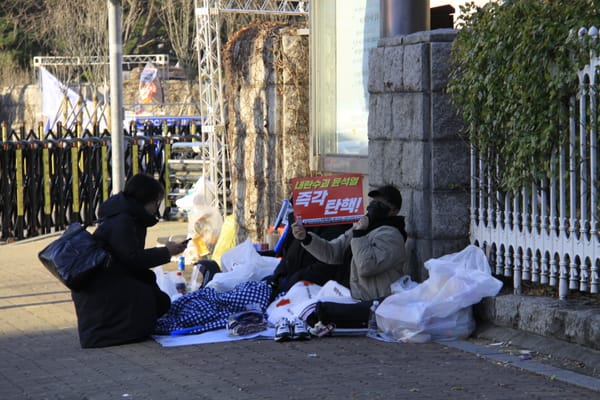Asia Undercovered Round-up: 13 Dec 2021
Undercovered last week
It was long assumed, but now we have proof. China’s top leadership, including Xi Jinping, played a key role in the creation of the Uyghur camps, which hold potentially a million and come alongside efforts to reduce birthrates and destroy Uyghur culture. Will this be enough for a stronger global response? (China Digital Times).
Meanwhile, in Hong Kong, censorship has now reached the libraries, which purged 29 titles connected to the 1989 Tiananmen Square protests (Selina Cheng, HKFP).
China doesn’t have a monopoly on oppression. Indonesia has been clamping down on West Papua, a similarly occupied region with aspirations of freedom. Last week, they arrested eight students for the crime of raising the banned Papuan flag, and are threatening to charge them with treason (Global Voices).
This happened alongside a glimmer of hope for the region, as the West Papuan Moi Indigenous people won a court case to keep palm oil interests off of their land. It’s a battle they shouldn’t have had to fight, but still significant (Al Jazeera).
Climate updates: Last month, the world – and many Asian leaders (though notably not China’s) gathered in Scotland for the COP26 climate conference. Here are two pieces recapping Asia’s involvement
Ayushi Kalyani reports on how India is planning to increase coal production, which she argues would be an environmental and social disaster and contradictory to the country’s climate goals (Madras Courier).
For HB Stiftung Julian Theseira writes on what Southeast Asian countries did at COP, including insufficient promises, backtracking on commitments, and otherwise failing to play a leadership role.
One bright spot: Vietnam, which has become a regional leader in renewable energy but facing challenges due to a limited electricity transmission infrastructure. Mark Barnes writes for Southeast Asia Globe on the country’s efforts to power a regional battery storage revolution.

Electoral Politics
She’s not running for President, but Vice President (after he dad, current President Rodrigo Duterte, decided to run for Senate.)
On another note, this piece by Siegfred Deduro explores how a party-list system, meant to reserve seats for the marginalized, has been taken over by the wealthy and political dynasties, another sign of how the Philippines electoral system is failing democracy.
Meanwhile, in Sri Lanka, the president of Gotabaya Rajapaksa has, according to Sudha Ramachandran, been underwhelming, as his excessive reliance on the military has plunged the country into multiple crises, and, increasingly, public discontent (The Diplomat).
Solutions Stories
She’s 14 but has high ambitions – to be a future President, but for now she’s focusing in climate and environmental activism. She’d already be a lot better than the current leadership, not only in Indonesia, but across much of Asia (Made Anthony Iswara, Climate Tracker).
And hope for journalists in Pakistan as the country passed what IPI is calling “milestone journalist safety legislation,” that would, among other things, put an end to the arbitrary arrest and detention of journalists.
Asia Undercovered: Round-ups and in-depth analysis of the news, events, trends and people changing Asia, but not getting enough attention in the US media.



